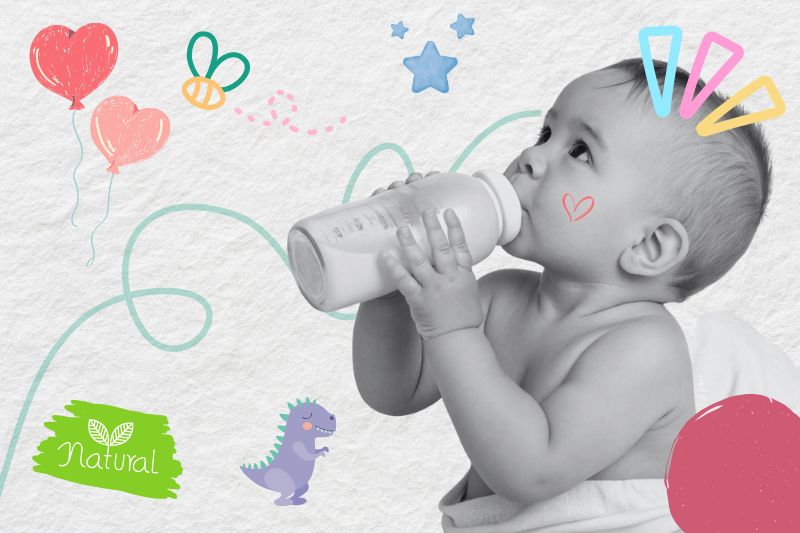Vegan baby formula is a plant-based alternative to traditional infant formulas, and it’s getting more attention these days.
Instead of using animal-derived ingredients, it’s packed with plant-based proteins, healthy fats, and fortified nutrients to support your baby’s growth and development.
In fact, the market for vegan baby formula was valued at 1.73 billion USD in 2023 and is expected to grow to 5.02 billion USD by 2032, with a compound annual growth rate (CAGR) of 12.55% during the forecast period from 2024 to 2032.
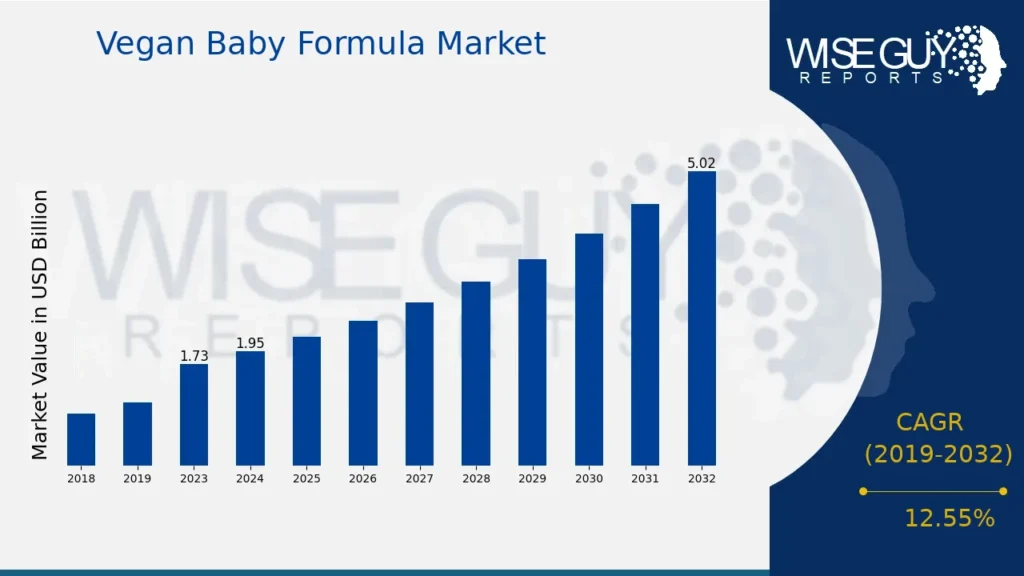
In the U.S., only about 25% of women breastfeed exclusively for six months, which is pretty surprising given all the health benefits we hear about.
A study found that 45% of women end up weaning earlier than planned, and two-thirds of them do so sooner than they intended.
For many, the reasons range from painful nipples and low milk supply to latch issues that just don’t seem to get better.
Remember:
Breast milk is the gold standard for infant nutrition, offering a perfectly balanced blend of nutrients and antibodies that support optimal growth and development.
It’s tough!
Over in Somaliland, 56% of mothers mentioned that latching problems were one of the biggest barriers to breastfeeding exclusively, which shows just how common these challenges are worldwide.
For parents who are vegan, or those looking for a dairy-free option because their little one has lactose intolerance or even mothers who can’t breastfeed due to medical reasons, vegan formula is becoming a more popular choice.
It’s also a growing option for parents who want to avoid animal products for ethical reasons.
In this guide, I’ll provide you with reliable, research-backed information to help you make the best choice for your baby’s health and well-being.
What Makes Baby Formula Vegan?
Vegan baby formula is exactly what it sounds like: it excludes all animal-derived ingredients. Instead of cow’s milk or whey protein, these formulas use plant-based proteins like soy, peas, rice, or oats.
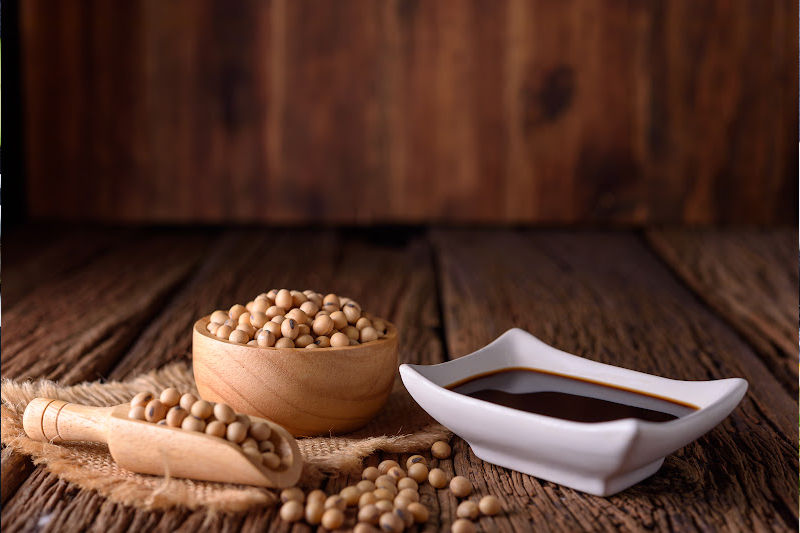
It is also fortified with nutrients like DHA, vitamin B12, and calcium – the same nutrients babies need to grow healthy and strong.
One thing parents love about these formulas is that they are made with minimal synthetic additives, focusing on clean, natural ingredients.
Is Vegan Formula Safe for Babies?
Yes, It’s safe as long as it meets regulatory standards. Like traditional formulas, vegan baby formulas go through rigorous testing to make sure they meet the nutritional needs of infants.

They’re designed to mimic breast milk in terms of key vitamins minerals and fatty acids, helping babies grow and thrive.
If your baby has lactose intolerance or a milk allergy, vegan formulas are especially helpful. But, as always, check in with your pediatrician to make sure you’re picking the right one for your baby’s specific needs.
Key Ingredients in Vegan Formula
Plant-Based Protein Sources in Baby Formula
Protein is one of the most important nutrients for babies. It helps with everything from muscle development to immune function. Vegan formulas typically use proteins from plants like soy, pea, rice, or oats.
Age | Recommended Daily Protein Intake | Source |
|---|---|---|
0-6 months | 1.52 g/kg body weight | Breast milk or infant formula provides all required protein at this stage. |
7-12 months | 1.2 g/kg body weight | The protein requirements slightly decrease due to complementary foods being introduced. |
1-3 years | 1.05 g/kg body weight | Protein needs remain high as toddlers grow rapidly. |
Soy protein is a favorite because it has a complete amino acid profile, while pea protein is hypoallergenic and super easy to digest. Rice and oat proteins are both gentle and good for babies with sensitive stomachs.
Benefits and Risks of Soy Protein
Soy protein is popular in vegan baby formulas because it’s packed with nutrients, but it’s not without its risks.
Some babies can have soy allergies, and soy contains phytoestrogens, which mimic estrogen in the body.
While research shows it’s safe for most babies, parents should keep an eye out for any signs of intolerance.
For those with soy allergies, pea or rice protein can be great alternatives. Your pediatrician can help you choose what’s best for your baby.
Healthy Fats
A healthy fat intake is critical for brain development, and vegan formulas use plant-based fats like coconut oil, algal oil, and flaxseed.
Coconut oil is easy to digest and provides medium-chain triglycerides (MCTs). Algal oil is a fantastic source of DHA, which supports brain and eye health. Flaxseed oil is rich in Omega-3 fatty acids, which are essential for overall development.
These plant-based fats give vegan formulas a solid nutritional foundation, just like the animal fats found in traditional formulas.
Vitamins and Minerals
The formula is only as good as the vitamins and minerals it includes, right?
Vegan baby formulas are enriched with all the essential nutrients that your baby needs to grow. For instance:
- Vitamin D: Supports calcium absorption and bone health.
- Vitamin B12: Crucial for red blood cell formation, nerve function, and energy production.
- Iron: Prevents anemia, supports oxygen transport, and aids brain development.
- Calcium: Builds strong bones and teeth.
- Zinc: Enhances immune function, supports growth, and aids in wound healing.
- Iodine: Essential for thyroid function and brain development.
- Vitamin C: Boosts immunity and enhances iron absorption.
- Vitamin A: Promotes healthy vision, skin, and immune response.
- Magnesium: Regulates muscle and nerve function and contributes to bone health.
Ingredients to Avoid in Vegan Baby Formula
Refined Sugars
When picking a vegan baby formula, it’s a good idea to steer clear of refined sugars or corn syrup. These sweeteners can contribute to unhealthy weight gain and may even cause metabolic problems down the line.
Always take a quick look at the label to make sure your formula doesn’t have any of these added sugars hiding in it.
Genetically Modified Ingredients (GMOs)
A lot of parents like to avoid GMOs in baby food, even though there’s no concrete proof that they’re harmful in small amounts.
For some, it’s more about peace of mind or avoiding them for ethical reasons. If you’re one of those parents, look for the non-GMO label to be sure you’re making the right choice.
Gluten
Gluten can be a tricky one. While most babies handle it fine once they start eating solids around six months, some babies are sensitive to it or even have Celiac Disease.

If your baby has gluten sensitivity, you’ll want to choose a gluten-free formula. The good news is that there are plenty of options out there, but it never hurts to double-check the label.
Soy
Soy protein shows up in lots of vegan formulas, but it’s not without its concerns. Soy contains phytoestrogens—plant compounds that mimic estrogen.
Some experts are worried about how these might affect hormone balance, though there’s no solid evidence to suggest real risks. In my research, I couldn’t find any reliable studies that show short or long-term effects.
However, if your family has a history of soy allergies or sensitivities, it might be a good idea to be cautious with soy-based formulas.
Soy allergy affects about 0.3% to 0.4% of infants and young children in the U.S. and while it’s one of the more common food allergies, it’s still less common than milk or egg allergies.

Plus, studies suggest that up to 40% of babies with a cow’s milk allergy could also be allergic to soy, thanks to the similarities between the proteins in soy and cow’s milk.
Heavy Metals
Some rice-based formulas can have trace amounts of heavy metals like arsenic, which are absorbed from the environment.
Arsenic in baby food, especially in rice-based products, can be risky for infants. It’s linked to a range of potential health issues, including developmental delays, cognitive problems, a higher risk of cancer, and disruptions to the immune system.

There are also worries about its impact on cardiovascular and metabolic health.
Synthetic Nutrients
Certain formulas use synthetic nutrients and preservatives, which can be a little harder for babies to absorb or could have potential side effects. Artificial iron, for example, might not be as effective as iron from natural sources.
Palm Oil
Palm oil has been linked to digestive issues like constipation in some babies, and there are environmental concerns about its production.

If you’re looking for a formula that’s easier on your baby’s tummy try to avoid formulas that use palm oil as a main ingredient.
Mineral Oil and Preservatives
Mineral oil can cause stomach issues and interfere with nutrient absorption, while preservatives might trigger allergies in some sensitive babies.
Unspecified Oils
Watch out for vague ingredients like “vegetable oil.” It’s unclear where these oils come from, and they could be from sources you might want to avoid.
Look for formulas that clearly specify which oils they use to avoid any hidden surprises.
Why Choose Vegan Baby Formula?
Ethical and Environmental Reasons
Choosing vegan baby formula goes beyond health considerations; for many families, it’s an ethical choice that supports animal welfare and sustainability.
Most plant-based formulas tend to have a lower carbon footprint compared to dairy-based options. One kilogram of milk formula production can emit anywhere between 4 to 14 kilograms of CO₂, depending on the production process and life cycle factors.
On the other hand, the general tendency is that plant-based formulas tend to generate fewer emissions because of the overall lower resource intensity of plant agriculture.
Health Benefits of Plant-Based Formula
Vegan formulas are perfect for babies with sensitivities to dairy, like those with lactose intolerance or milk allergies.
They’re also free from hormones, antibiotics, and artificial additives, which is a huge win for many parents concerned about what goes into their babies’ bodies.
Plus, These formulas provide the same essential vitamins and minerals found in breast milk or dairy-based formulas, ensuring your child receives complete nutrition.
How to Choose the Best Vegan Formula for Your Baby
Let me repeat it quickly as I already mentioned what ingredients consist of vegan baby formula. Make sure it’s completely free of animal-derived ingredients like whey and lactose.
Look for formulas that are plant-based like soy, rice, almond, or oat.
You also want to ensure the formula has all the key nutrients. This includes B12, vitamin D2, calcium, and DHA (usually sourced from algal oil), which are crucial for development.
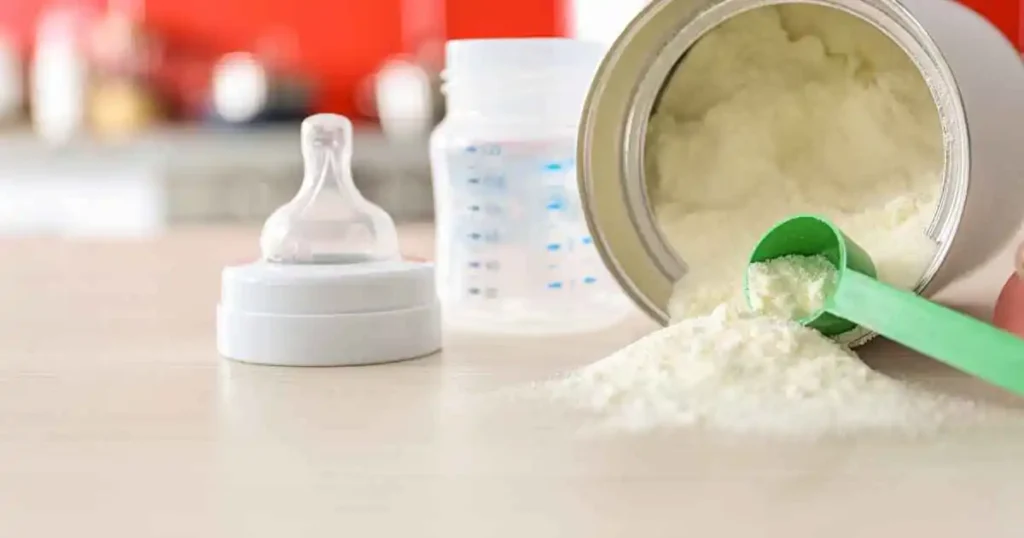
A good vegan formula should also provide enough protein and a balanced mix of Omega-3 and Omega-6 fatty acids to support both growth and brain development.
Don’t forget to check if the formula meets safety standards, like those from the FDA, CAC or EFSA. If you can, look for organic certifications too, they often mean the ingredients are of higher quality.
And for babies with sensitive tummies, formulas with hydrolyzed rice protein can be a good choice since they’re typically easier to digest and can help avoid any stomach issues.
Price and availability matter too. Some formulas can be expensive or harder to find. That’s why it’s important to do your research and find a good balance between quality and cost.
Common Concerns and Misconceptions About Vegan Baby Formula
Is Vegan Baby Formula Nutritious Enough?
Yes, vegan baby formulas are nutritionally complete as long as the formula meets regulatory standards, it’s just as good as traditional formulas.
Concerns About Growth and Development
Some parents worry that vegan formulas won’t support their baby’s growth as well as dairy-based options.

But the truth is, studies show that fortified vegan formulas support healthy growth just like regular formulas. With the right nutrients like DHA, iron, and calcium your baby will hit all their milestones.
Vegan Formula vs. Dairy-Based Formula
The key difference between the two is the source of protein. Vegan formulas use plant-based proteins like soy or pea, while dairy formulas rely on cow’s milk.
Both are fortified to ensure balanced nutrition.
The Transition to Vegan Formula
How to Transition Your Baby to Vegan Formula
Switching to a new formula should be gradual. Start by mixing a little bit of vegan formula with your current formula or breast milk, and slowly increase the ratio over a few days.
This helps your baby adjust without any digestive issues or discomfort.
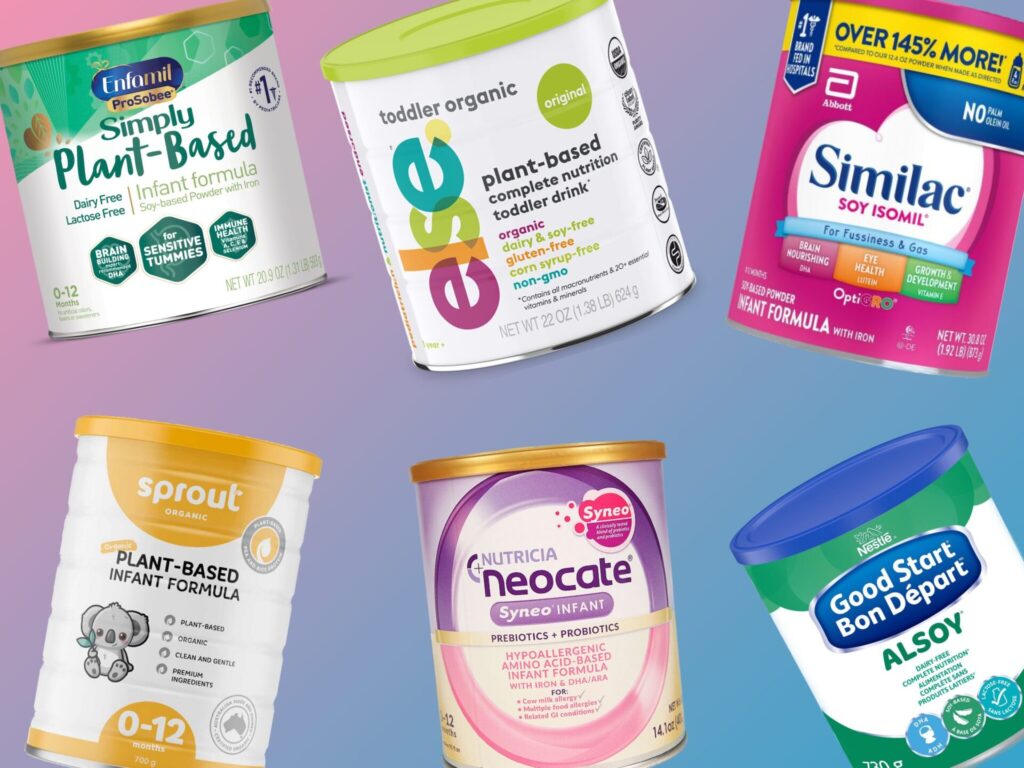
Signs That Vegan Formula is Working for Your Baby
If your baby’s weight gain is steady, they’re pooping regularly, and they seem happy and alert, that’s a good sign the formula is working.
If you notice any unusual reactions, like fussiness or digestive trouble, it might be worth checking in with your pediatrician to rule out allergies.
Combining Breastfeeding with Vegan Formula
If you’re combining breastfeeding with vegan formula, it can be a great way to get the best of both worlds.
Breast milk is amazing for building your baby’s immunity and creating that special bond between you and your little one.
On the other hand, a vegan formula can fill in some nutritional gaps, especially if you’re worried about low milk supply or need to supplement specific nutrients.
Organic vs. Non-Organic Vegan Formulas
When deciding between organic and non-organic vegan formulas, it really comes down to personal preferences and your budget.
Organic formulas are made with ingredients grown without synthetic pesticides or fertilizers, so they tend to be seen as a cleaner, more natural option.
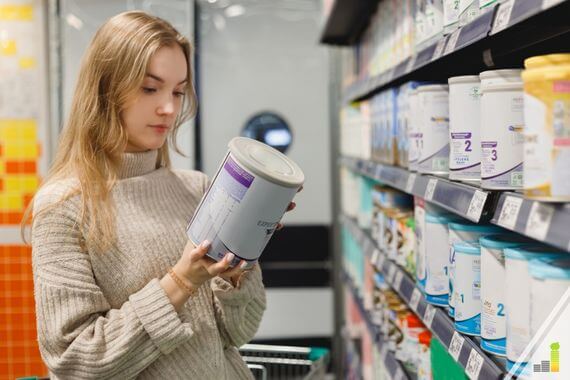
That said, non-organic formulas are still held to high safety and nutritional standards. They often provide similar benefits but at a more affordable price.
Weighing the pros and cons of each option can help you figure out what works best for your family.
Partnering with Your Pediatrician
Don’t underestimate the role of your pediatrician when it comes to choosing the right vegan formula for your baby.
They can recommend specific brands, point out any potential nutrient gaps, and suggest supplements if needed.

Regular checkups are crucial for keeping track of your baby’s growth and addressing any concerns early on.
FAQs
What can I give my baby if I have no breast milk?
If breastfeeding isn’t an option, commercial infant formula is the next best choice for babies under 12 months.
For babies over 6 months, cow’s milk can be used for a short time, but it’s not a complete solution. Use soy milk in rare circumstances.
Around 4-6 months, you can start introducing iron-rich purees and solids if your baby shows signs of being ready.
Never forget to consult with your pedestrian before making any changes to your baby’s diet.
Can babies have almond milk?
You can start giving almond milk to babies once they’re over 12 months old, as they need breast milk or formula for healthy growth before that age. When introducing it, make sure you choose an unsweetened, calcium-fortified version.
Almond milk has some benefits, like vitamins A, D, and E, plus calcium (if it’s fortified), but it’s pretty low in protein and fat. So, it shouldn’t completely replace cow’s milk.
Instead, think of it as just one part of a balanced diet alongside other nutritious foods. And, as always, check with your pediatrician before making any big changes to your child’s diet.
Conclusion
Vegan baby formulas are a completely safe alternative to dairy-based options. These formulas are enriched with essential vitamins and minerals, ensuring your baby meets all nutritional needs.
Choosing the right formula is important, and it involves thinking about things like the quality of the ingredients, the regulatory standards behind the formula and of course your baby’s unique dietary needs.
Every baby is different, and finding the best fit can take some careful consideration.
Raising a vegan baby is a rewarding experience, but it does require planning and regular consultations with healthcare professionals.
With the right approach, parents can provide a balanced and healthy diet that aligns with their values. Staying informed and being proactive is key to making sure your little one thrives on a vegan lifestyle.
Vegan formulas are a reliable source of nutrition, supporting healthy growth while sticking to plant-based principles.
By choosing high-quality products and working closely with your pediatrician, you can confidently raise a healthy, happy baby on a vegan diet.
